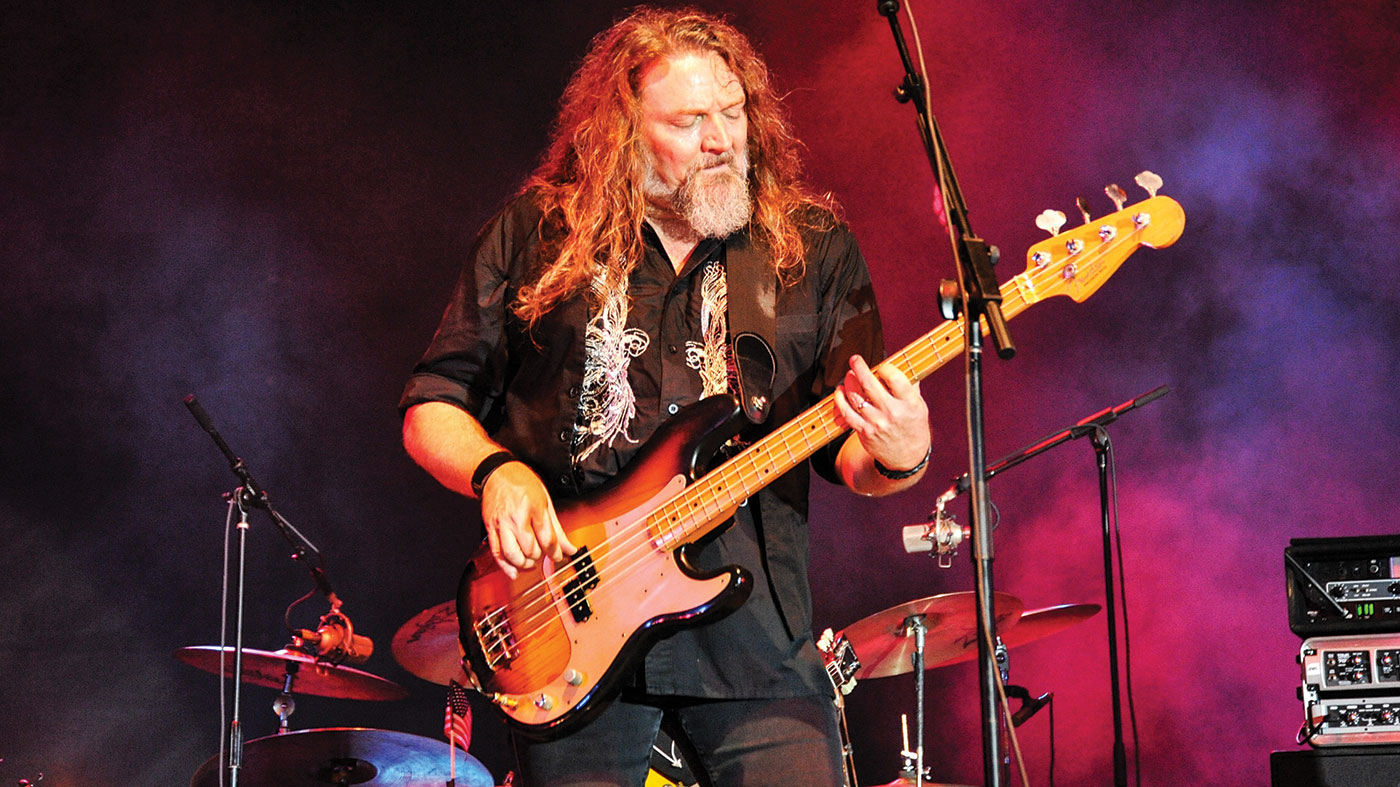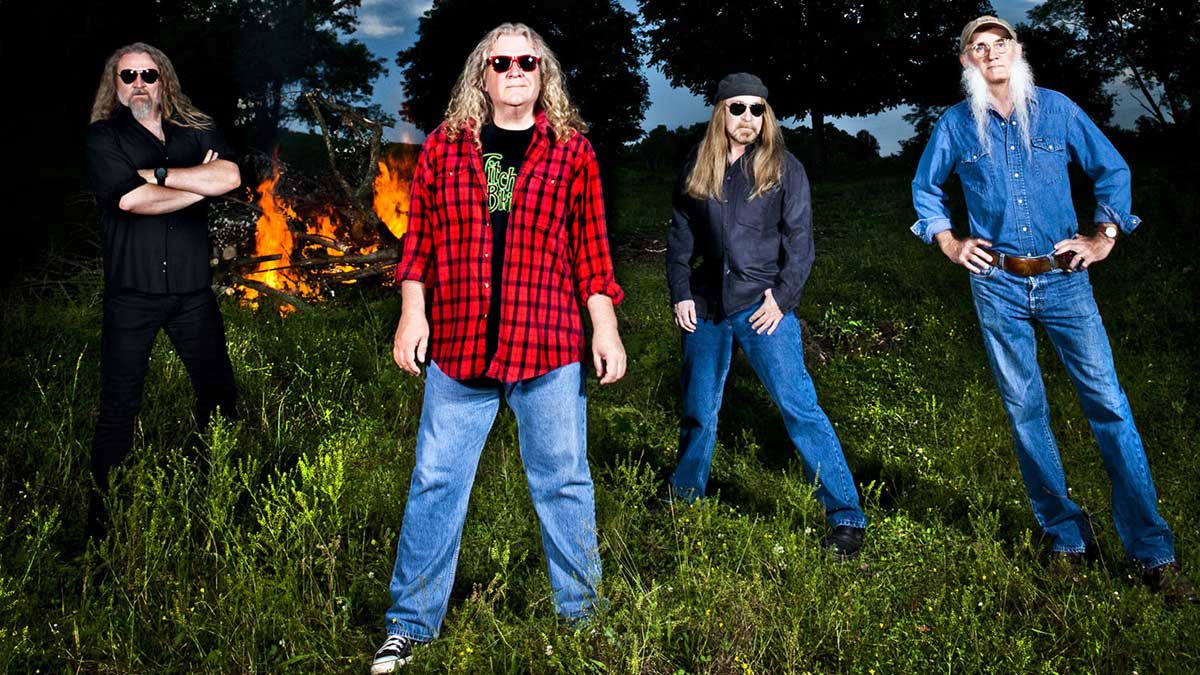Doug Phelps talks Kentucky Headhunters and sweet country tones
The Southern-rocking bassist talks tone

With 30-plus years as a professional musician to his credit, most of them with the Kentucky Headhunters, tone is a natural thing for Doug Phelps.
The 1958 Fender P-Bass that he uses on the band’s latest album, On Safari, is the one he’s used on all of his recordings with the Headhunters. “We go direct with it,” he says. “We can dial in a little bit of this and a little bit of that, but it doesn’t take much. That bass sounds great.”
I know a lot of great bass players who can play the fire out of one, but I’ve always tended to lean more toward just playing what the song needs
A self-described “strictly vintage guy”, Phelps has remained tried and true to four-string basses and has a traditional approach to playing and writing. “We have a few songs over the years where I tune the E string down to D, so if I need to go a bit lower, I just go that route and work out the fingering,” he says, “but I’ve always played four strings. I’ve never strayed past that all these years.”
On the road, where the Headhunters spend much of their time, he brings a backup, lovingly known as his Frankenbass. “It’s a ’62 P-Bass body, custom white, but it looks like whoever had it before me tried to take the finish off,” he says.
“The person I got it from had sanded it, so it’s actually down to its natural wood and it looks really cool. It has a ’56 P-Bass neck: of course, that’s the last year they had the Telecaster headstock style. It plays great, sounds great, and that’s the bass I took overseas with us when we played the UK.”
Endorsed by Peavey, he uses Tour 600 heads, with a Tour 700 backup, through an 8x10 cabinet. “That gives me the stage volume that I like,” he says, “because I like hearing it from behind - old-school, I guess. We do a DI for out front, I get a little bit pumped back through my monitor, and I’m good to go. Being a lead singer who plays bass, there’s a fine balance between what you want to hear, but we’ve got a great crew out there with us, and they dial it in very nicely for me.”
Phelps grew up in a musical family in southeast Missouri. By the age of five, he was picking out melodies on piano, and shortly afterwards he became interested in guitar. “All the Phelps side of the family, uncles and great-uncles and grandma, all of them, played and wrote music,” he says. “It’s in the genes, I guess.”
Get the MusicRadar Newsletter
Want all the hottest music and gear news, reviews, deals, features and more, direct to your inbox? Sign up here.
When he was almost 10, he began playing his father’s 1967 Fender Mustang. “I would take the amp, roll all the bass up, and turn the treble off, trying to play bass that way. My dad’s youngest brother was a really good bass player, the first professional musician in our family. He gave me a ’66 Fender Jazz bass so I could actually play bass.”
As a bassist, Phelps was influenced by Paul McCartney, Bill Black and ZZ Top’s Dusty Hill. “I think his statement was always, ‘You need to feel a bass player. You don’t really need to hear him playing lead bass that great.’ I know a lot of great bass players who can play the fire out of one, but I’ve always tended to lean more toward just playing what the song needs: laying down a good groove, providing the bottom end, and keeping it a little simpler.”
Like his uncle, Doug Phelps is a career musician. Growing up, he worked on his family’s farm, played in bands while in high school, and was in his fifth semester of college, 20 years old, when a friend called from Nashville about an audition with country singer Ronnie McDowell. Phelps got the gig and never looked back. When the Kentucky Headhunters formed in 1986, he says, the only rule was that there were no rules.
“We pretty much run the spectrum of musical influences, and sometimes it can all be piled up within one song. Our first single, ‘Walk Softly On This Heart Of Mine’ [Pickin’ On Nashville, 1989] was a Bill Monroe bluegrass tune, but the music was blues and rock-based with a bluegrass influence over the top of it. It’s always been kind of a mixture, so pretty much anything goes when it comes to music.”
Kentucky Headhunters tour the UK from 2 to 10 October - tickets are available from See Tickets.


“Every note counts and fits perfectly”: Kirk Hammett names his best Metallica solo – and no, it’s not One or Master Of Puppets
“I can write anything... Just tell me what you want. You want death metal in C? Okay, here it is. A little country and western? Reggae, blues, whatever”: Yngwie Malmsteen on classical epiphanies, modern art and why he embraces the cliff edge










